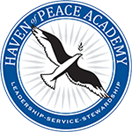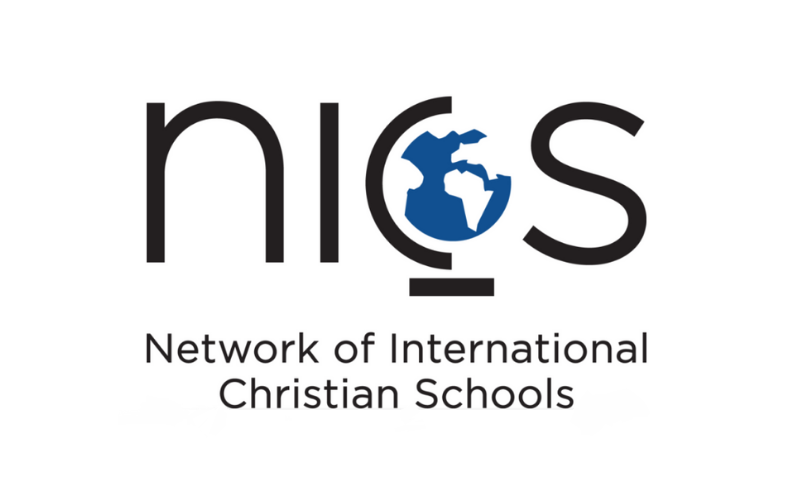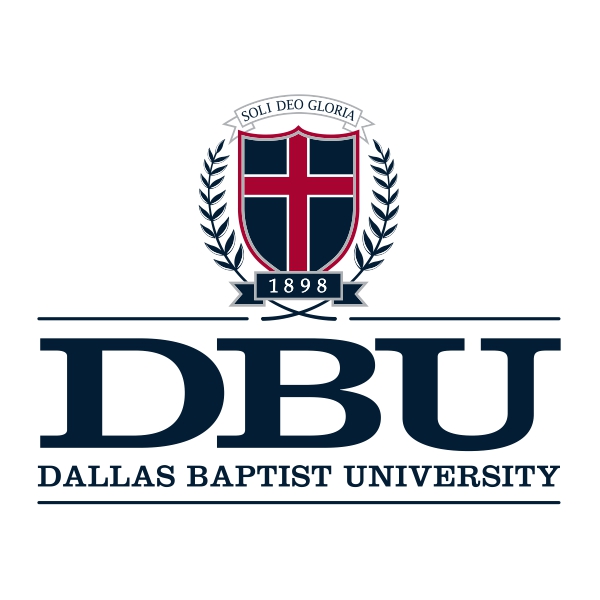HOPAC was founded in 1994 as a school for children of missionaries but has evolved into a Christian international school whose student population is divided between:
- Children of missionaries and full-time Christian service workers.
- Children of expats working in the non-profit and for-profit sector.
- Children of Tanzanians working in the for-profit and public sectors.
There are over 390 students from over 30 countries at HOPAC. While the majority of the students are Christian, students of Hindu and Muslim faith are also represented in the student body.
Currently, we have teachers from the U.S., the U.K., India, Cameroon, Ghana, Uganda, Kenya, Zimbabwe, Canada, Malawi, and Tanzania.
The Ministry of Education in Tanzania requires that expatriate teachers applying for a teaching license for the first time:
- have a Bachelor degree in education or in the subject to be taught and teaching certification,
- have 3 years of teaching experience (however they do not specify if this experience has to be post-degree)
In addition to the above governmental requirements, HOPAC requires that its teachers are committed Christians in agreement with HOPAC’s faith statement and are fluent in English, which is the language of instruction at HOPAC.
Undergirding the school's curricula choices, our philosophy of education guides the daily actions of the school and all staff. Staff are required to teach in line with the philosophy of education, treating students as image bearers of God, with an aim to provide holistic education to meet the full needs of each student. At the core of the educational program, as reflected in the mission statement, is the need to equip students to live out a biblical worldview.
Effectively implementing a biblical worldview in teaching requires:
(1) A solid understanding of Scripture, its truth, and its application to our lives,
(2) Constant collaboration and mentoring among teachers and administration,
(3) Training and support for all educators sharing biblical truth with students,
(4) Consistency in our integration approach as a school, and
(5) Specific objectives which ensure that secularly-driven curriculum is taught through a biblical worldview.
Overall, the school follows the objectives set by the Cambridge International Programme, though a varied degree of flexibility is used in pre-IGCSE courses. The primary curriculum uses core objectives in mathematics and English, while the middle curriculum uses core objectives in mathematics, English and science. All levels are supplemented by various coursework – such as PE, life skills, IT – that is adapted to our local context and the needs of the student population. For all IGCSE and A level courses, the Cambridge syllabus is followed closely.
UK / US Equivalent
Primary / Elementary School
Key Stage 1 (Year R - 2) / Grades K - 1
Key Stage 2 (Year 3 - 6) / Grades 2 - 5
Middle School
Key Stage 3 (Year 7 - 9) / Grades 6 - 8
Senior / High School
Key Stage 4 (Year 10 & 11) / Grades 9 & 10
Key Stage 5 (Year 12 & 13) / Grades 11 & 12
HOPAC is a school in the Network of International Christian Schools (NICS), and is accredited by Association of Christian Schools International (ACSI) and by Middle States Association.
HOPAC is a licensed Cambridge International Examinations Centre and registered member of the Cambridge Primary Programme.
Historically, HOPAC has required teaching staff to be supported financially through supporters, a mission organization, or a sending home church. However, we recognize that this is not always feasible for all applicants.
As a NICS school, incoming teachers can become NICS missionaries and form a financial and spiritual base or support in their home country. Other teachers are sent to Tanzania with a different mission organization and then “seconded” to HOPAC/NICS. Some teachers come from countries where joining a mission agency is not a viable option. We encourage all teaching staff to be supported spiritually with support from a pastor, a ‘safety net’ of prayer, and encouragement.
All teaching staff support the work of missions in partnership with the school through providing education, and all teachers aim to disciple and mentor HOPAC students in their Christian journeys.
Some missions that are either here working in Dar or that a HOPAC staff member are with are:
- African Inland Mission (AIM)
- Association of Baptists for World Evangelism (ABWE)
- Christian Missions to Many Lands (CMML)
- New Tribes Mission
- Pioneers UK
- ReachGlobal
- SIM
- Wycliffe Bible Translators
- Young Life
If you have a mission or church that you would like to partner with to come teach at HOPAC, please contact us, as we are always looking to expand our mission partnerships.
Please feel free to contact us if you have questions on how this “missionary” concept applies to your situation.
HOPAC does provide financial assistance in the form of a monthly stipend. In addition, the school provides either local or international insurance, a matching retirement program, and tuition discounts for dependent children. The school works with teachers not supported financially on benefits such as housing and travel.
Teachers are expected to provide or raise support for set up costs and the school's Member Care team work with incoming teachers to assist teachers in being prepared for arrival in this area.
If you are being sent through another mission organization, they will have their own rules and guidelines for how much support you will need to raise and you need to discuss this with them.
HOPAC works with new teachers in locating and securing housing, or teachers may work with their sending mission.
Many new HOPAC teachers live in housing close by the school.
Some teachers choose to rent a furnished house/flat/apartment and some choose to purchase furnishings from leaving teachers or local stores. “Furnished” can mean a wide variety of things and “unfurnished” can mean that there are no appliances whatsoever.
Having a worker help with cleaning and/or cooking is your decision (and that of your housemates if you have them) but is very normal in Dar and affordable.
Having security guards at your home is very standard and recommended to deter petty theft.
From a cultural/geographical standpoint:
- Because the average daily temperature in Dar is 30 degrees C/86 degrees F with high humidity, cotton tends to be the most comfortable as it ‘breathes’ better than polyester.
- The Tanzanian culture is fairly conservative with regards to dress for women so that generally means no skirts above the knee, shorts are best left for athletics or lounging around at home and no clothing that reveals your tummy area.
- In some parts of town there is a strong Muslim influence/population and there bare shoulders are best avoided.
There are two rainy seasons: the short rains in October and the long rains in March/April. You will want to either bring an umbrella or plan on getting one once here.
From a professional standpoint, acceptable attire at school consists of:
- For women, skirts and dresses to the knee or longer, loose trousers (but not jeans), covered shoulders (no spaghetti straps or tank tops), no revealing tops
- For men, shorts and jeans are not acceptable at school, and collared shirts are expected
- Sandals are very welcome
- There is no smoking on campus. Furthermore, because smoking is seriously frowned upon in the Tanzanian culture, HOPAC strongly discourages its teachers from smoking elsewhere.
- Alcohol: several sending missions have policies on alcohol and HOPAC defers to those policies. In absence of a mission policy, HOPAC discourages anything but moderate, discreet use.
- Male/female relations: Public displays of affection are inappropriate in Tanzanian culture (although you can often see members of the same sex walking hand in hand), as is a single woman entertaining a single man alone in her home.
Letters and parcels:
Teachers can send and receive mail via the HOPAC post office box. To send letters from here pass them onto a member of the operations team.
Email/internet:
You will be set up with a HOPAC email address. You will be given a work laptop/computer and will have access to the internet while at school. Many teachers use their phones as hot spots to access the internet while at home.
Cell Phone:
Most teachers get a SIM as soon as they arrive using a local phone bought here or an unlocked international phone. You can register and buy sim cards easily and prepaid airtime can be purchased at shops all over Dar or via mobile money or apps connected to a US bank. Many of our staff use WhatsApp or FaceTime to stay in touch with their home countries.
You have several options available for local transport:
- Your own two feet – although everything is not within walking distance
- Public transport via ‘dala dala’s’ (local buses) – this is an inexpensive mode of transport for getting around town during the daytime although some drivers are not always cautious in their style of driving. Traveling on the local-type dala dalas at night or for long distances is not as safe. Larger, nicer buses are available for long distance travel within Tanzania and to neighboring countries.
- Uber/ride apps – this is a common and safe means of transport, although after dark is is best to travel with known drivers.
- Bajaj/pikipiki – many teachers regularly use bajajs (three-wheeled small vehicles) or pikipikis (motorcycles) to travel short distances. There are some well-known bajaj drivers commonly used by teachers. Motorcycles are not the safest means of travel.
- Purchase a vehicle – if you are here long term, you might want to consider buying your own vehicle. Be prepared to pay higher prices than you might at home because of import duties that are added into the sales cost. There is a quite a gap in price between fairly new second-hand vehicles (US$10,000-15,000) and older second-hand vehicles (US$6000-10,000) which, while cheaper, may have maintenance issues. NOTE: If you do plan to drive while in Tanzania, you should get an international drivers’ license in your home country and bring that with you. Alternatively, it is not difficult to get a Tanzanian driving license.






